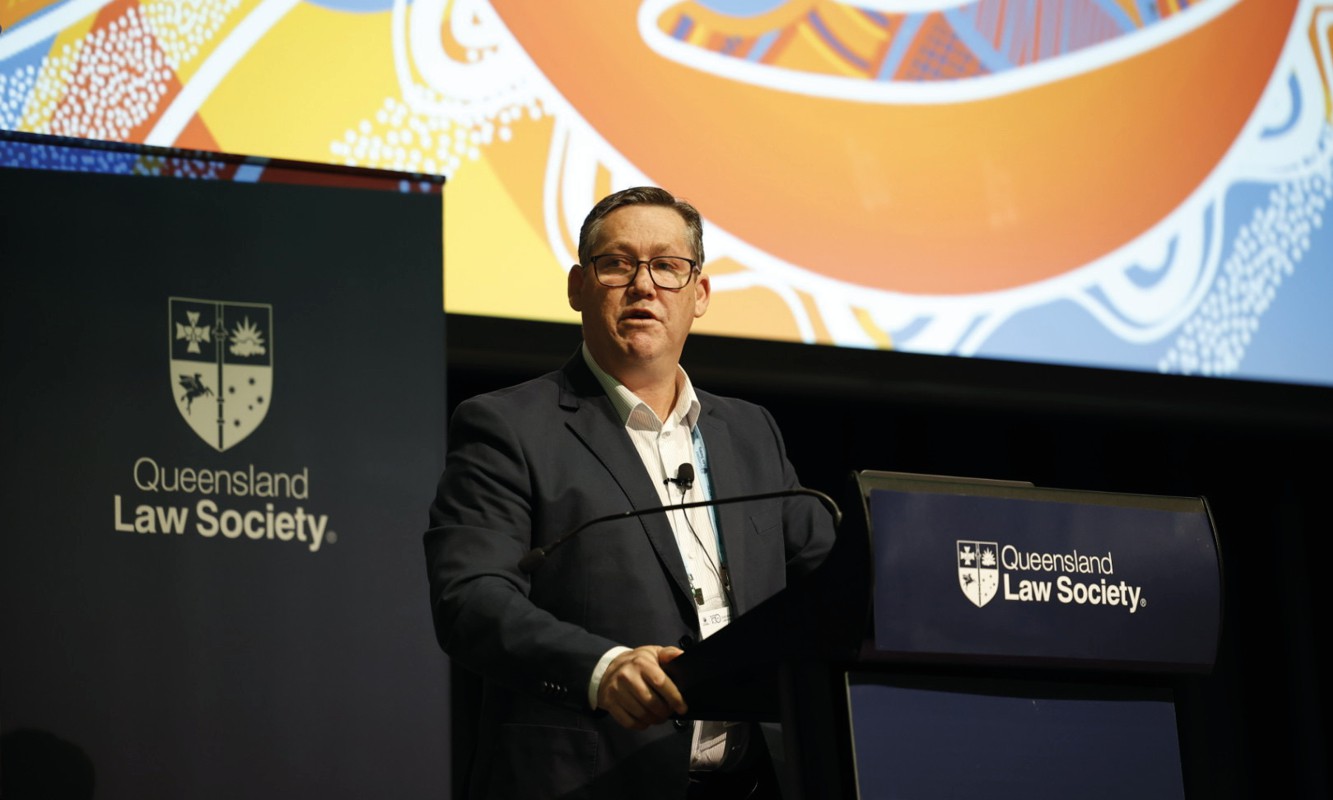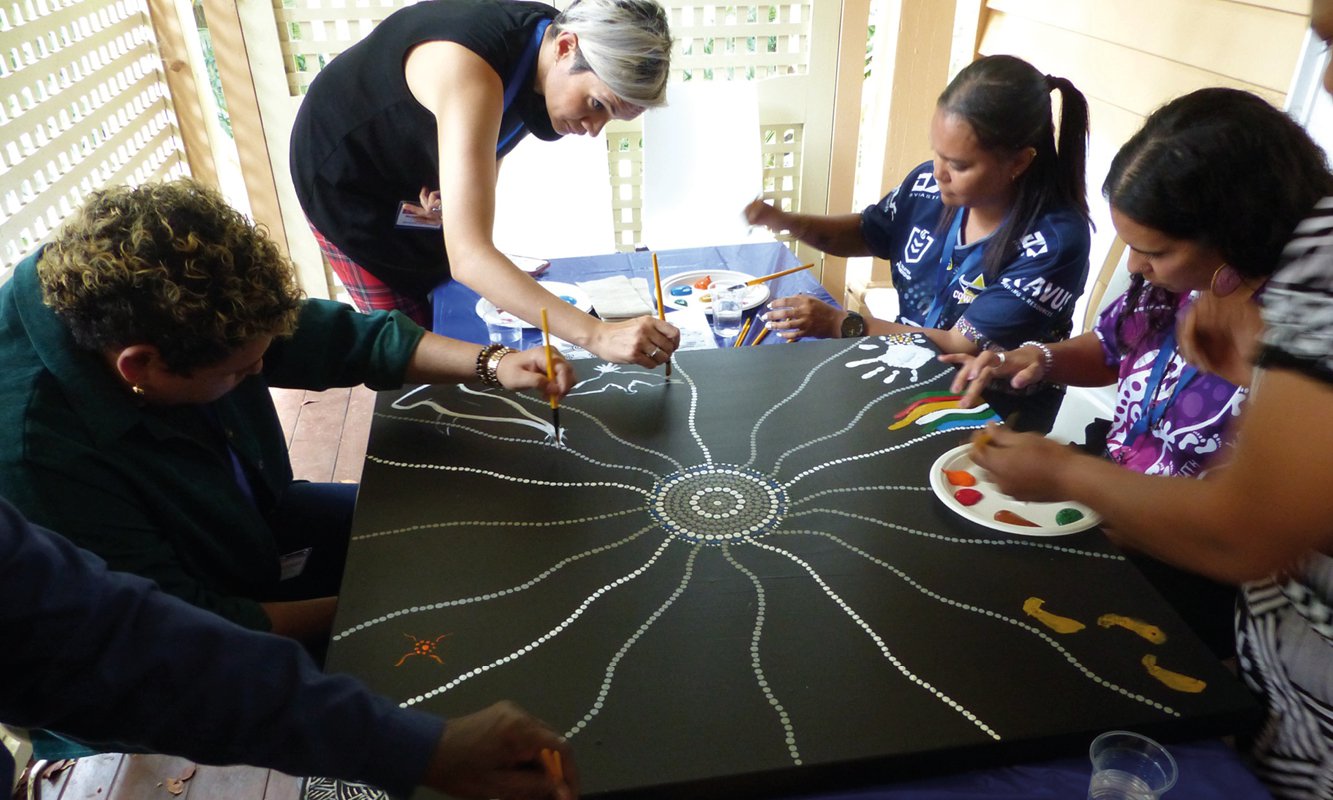I am very fortunate to be one of the very few First Nations people to be practising at the Bar in Australia. My identity and my practice in the areas of native title and Human Rights class actions has given me unique insight into the history and experiences of First Nations people; a view unlikely to be shared by many others.
Over the course of my career, I have been involved in a number of cases that have shaped me professionally and personally. These cases show that when it comes to human rights, First Nation people face significant differences and hardships within our society and legal system.
In mid-2015, I was briefed in the class action Wotton v State of Queensland (No 5) [2016] FCA 1457. For me, Wotton turned out to be a brief that dictated the rest of my career. It was a case that was so far outside the box that it actually challenged the application of the law and the type of litigation that might be possible.
Mabo was also one of those cases, and 30 years later we are still wading our way through native title. However, it is the combination of human rights and the Federal Court class action regime which made Wotton so unique. Because class actions can take several years before they are filed, the full effect of that decision is yet to be on full display, but I can assure you based off my experience, there are many more cases to come.
In Wotton the applicant brought proceedings against the State and the Queensland Police Service (QPS) on behalf of the Aboriginal community of Palm Island, for breaches of section 9 of the Racial Discrimination Act 1975 (Cth) (RDA).
Section 9 of the RDA makes it unlawful to discriminate against a person based on – among other things – their race. The claim arose as a result of the death of Mulrunji Doomadgee in custody that occurred in the Palm Island police station on 19 November 2004.
A week after his death, members of the Palm Island community engaged in unrest that resulted in the police station and attached courthouse being burnt down. In response, the QPS deployed an additional 100 QPS officers to Palm Island (over 10 times the usual QPS presence), including SERT and PSRT officers.
SERT are trained in “counter- terrorism” and PSRT are trained in dealing with riots. During their deployment on the Island, SERT and PSRT were involved in raids on 18 Palm Island homes and a nineteenth location known as Wallaby Point. During these raids, numerous arrests were made in connection with the unrest. Other arrests were also made by non-SERT and PSRT officers separate from the raids.
Following the trial, the applicant was successful in establishing a number of its claims. Mortimer J found that an impartial or independent investigation into the death was not conducted, there were substantial failures by the QPS in the days following the death, there was an excessive and disproportionate response which included the use of SERT and PSRT officers and members of the QPS acted with impunity because they were dealing with an Aboriginal community.
In total $35 million was paid to the applicants and 447 group members by way of compensation.
Once you get past the intensity of the factual issues in Wotton you come to realise that the decision is actually about Government and the delivery of services.1
The rationale in Wotton is simple: when government deliver services to First Nations Australia and those services are defective – and the defect arises as a result of race – then the conduct of Government (or its agents) is in breach of the RDA.
The test applied by to section 9 of the RDA by Mortimer J in Wotton was: s 9(1) can be seen as having a conduct-based limb and an outcome-based limb.2 “The first limb looks to what happened, and its connection with race. The second limb looks to the outcome or consequences (actual or intended) of what happened.”3
The rationale in Wotton was applied to the stolen wages class action in Pearson v State of Queensland (No 2) [2020] FCA 619, which settled for $190M last year. Although the claim settled before the trial, the applicant had filed all of its lay and expert evidence and the Court had undertaken a preservation of evidence hearing.
Late in that case much attention was again drawn to the conduct of the State, and whether its conduct in administering a reparations scheme to stolen wages victims between 2002 and 2016 was in breach of s 9 RDA. The recently filed stolen wages class action in the Western Australia, Street v Western Australia also draws similar attention of the conduct of the Western Australia government and its administration of a similar reparation scheme.
All three class actions I’ve mentioned, are deeply rooted in the ‘Protection Era,’ a relic of Australia’s awful treatment of First Nations people, a period which lasted in Queensland from the late 1800s to the 1980s.
A substantial amount of evidence in Wotton and Pearson centred on this period. During the protection era, because of their race, First Nations people were subjected to a brutal and oppressive regime; including controls, extending to, and restrictions in the freedom of movement, the control of wages, the limiting of access to education, and subjection to poor health and living conditions. Critically, due to the brutality inflicted by their Second Nations “Protectors” a lasting legacy of trauma among those subjected to the regime and their descendants now exists.
My involvement in these cases, as well as several other class actions that are yet to be filed; it’s clear that much of the disadvantages that First Nations people experience today, is directly attributable to the protection era. It is a legacy that we as a nation are yet to truly understand and address.
1 At [1469]
2 At [530].
3 At [531].













One Response
The murder of Mulrunji Doomadgee was a terrible crime — as all murders are. But riot and arson cannot go unchecked. The QPS was right to deploy overwhelming force to restore order and peace. The police must respond to riots with the riot squad. I well remember seeing a on television a SERT officer, rifle over his shoulder, joining with local children spearfishing from a jetty. Doing both needful things. Preserving the peace and doing his best to restore friendly relations with the men, women and children he was bound on oath to protect. We should rather blame ourselves for our crimes and negligence in failing to address the problems of troubled communities, than police. And I cannot help but think that we’d be better off with minimal litigation as some sort of solution to large social problems.